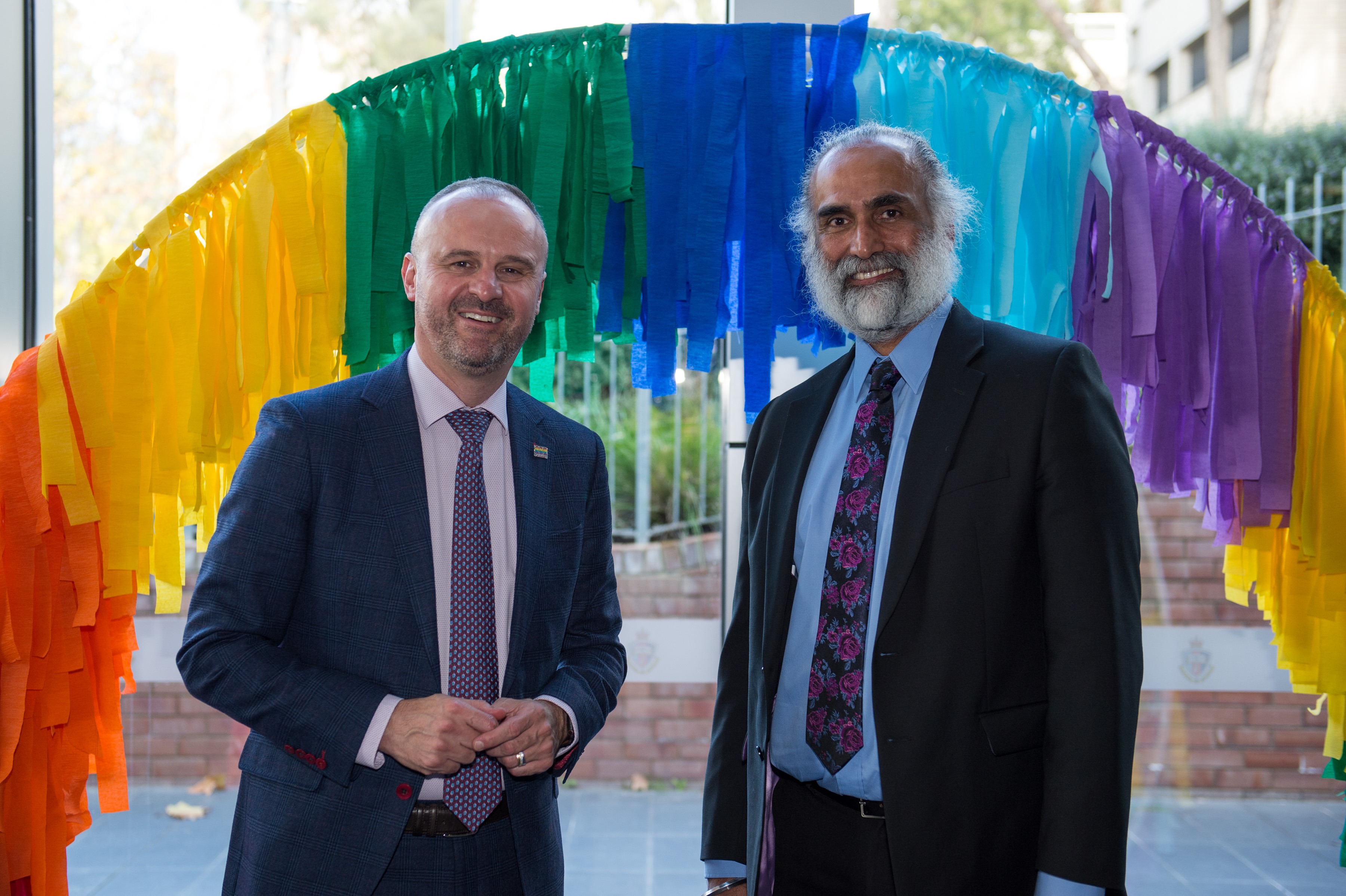UNSW Canberra marks IDAHOBIT 2021
Students, staff and special guests, including ACT Chief Minister Andrew Barr, celebrated this years’ IDAHOBIT at UNSW Canberra today, sharing lived experiences and discussing the importance of being an effective ally.

